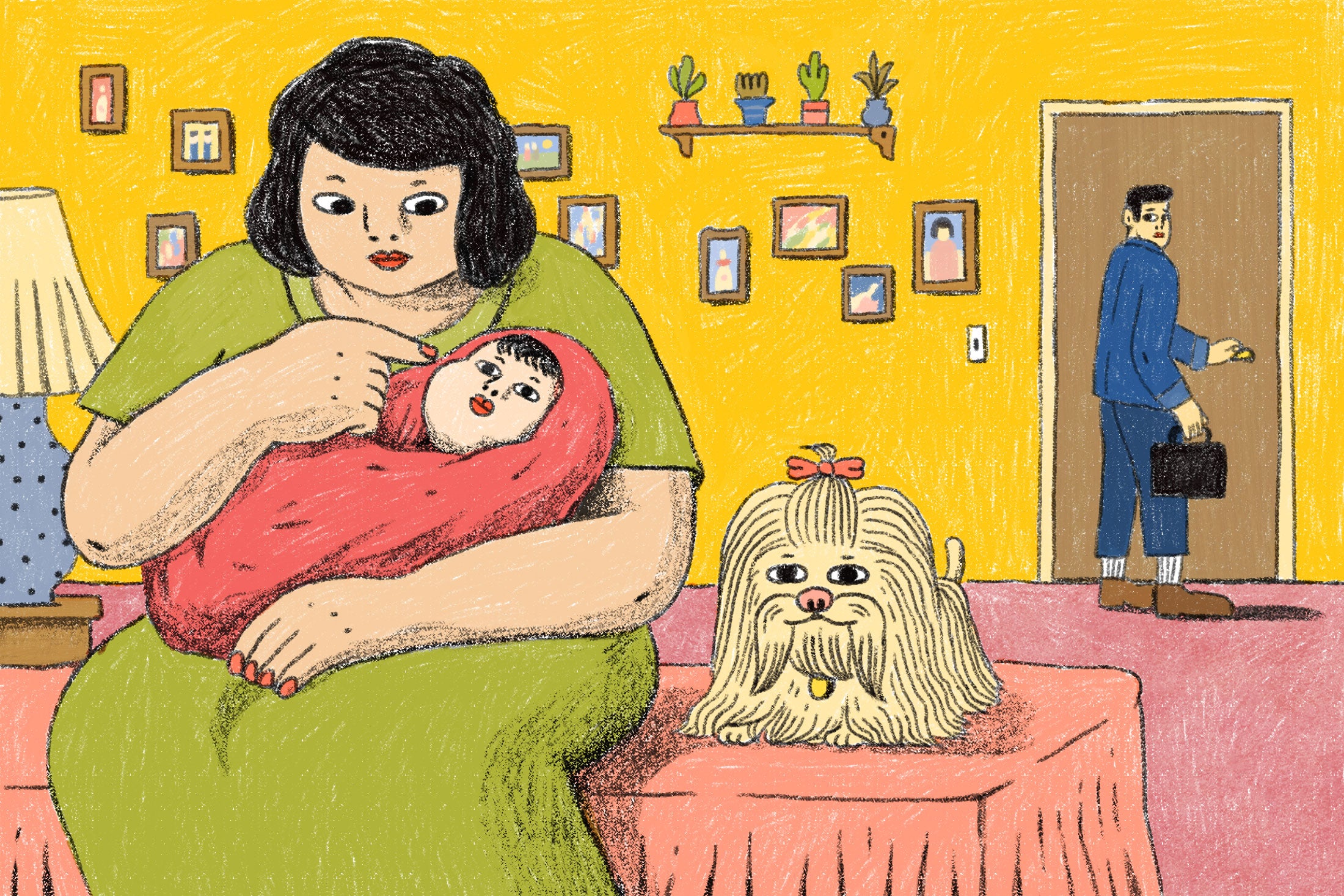Achieving gender equality is as much a matter of changing and expanding roles for men as advancing women in the workplace. Though a majority of Americans support paid family leave (though they may disagree over how to provide it), new research out in time for Father’s Day suggests insufficient paid leave as well as social expectations prevent fathers from caring for their children as much as they’d like.
Promundo and Dove Men+Care surveyed 1,714 men and women ages 25 to 45 and found no difference across gender about how involved they want to be in their kids’ lives. Beyond worrying about their ability to pay for basic costs such as food and housing while on leave—which is significant, given only 38 percent of workers qualify for and can afford to take unpaid leave under the Family and Medical Leave Act, and only 15 percent of Americans have access to paid family leave—fathers reported wanting to be involved, but that they also “worry what other will think if they prioritize their children over work.”
In 2017, the Pew Research Center similarly found that two-thirds of men wished they’d had more time after the birth of their child. Unsurprising, given that of the small subset of men who took paid leave, 7 in 10 men took less than two weeks. Most cited pay as the barrier to taking time off. Other research on paid leave confirms that paid leave with higher wage replacement rates (the percentage of their regular income they will receive while taking leave) is key to men taking time off. Higher-income Americans and women are more likely to have access than lower-income Americans and men.
According to the study, social and work environments determine whether men feel comfortable taking leave and fully embracing caregiving responsibilities: whether they feel in control over their work lives, have access to flexible work arrangements, and perceive that their workplace and parents would support them in taking on more caregiving responsibilities. The key to men taking leave and providing child care, Promundo suggests, is not individual choice but rather a matter of providing adequate paid leave, changing workplace policies, and altering social norms to value care work by all genders.
The pressure for women to exit the workforce and to focus on caregiving when they become mothers works in the opposite direction for men: men in the study reported feeling more pressure to prioritize work over their home lives than women. This might be due to the fact that women have more practice juggling work and care, or because they’re often pushed out of the full-time workforce when they have kids—a big source of the wage gap. However, both men and women who reported being “satisfied with their childcare involvement” also reported being more satisfied with their personal, work, and sex life.
Nonetheless, the study also found that both men and women still perceive women to be better caregivers—in terms of daily planning, emotional care, and physical care—and men better earners, despite evidence that caregiving is a learned socialized behavior.
The study builds off other research on masculinity by Promundo, like the ManBox, which describes the types of behaviors and roles men feel comfortable taking on, depending on how firmly they believe in being a traditional “man’s man”—defined by feelings of self-sufficiency, attractiveness, acting tough, aggression, and traditional gender roles, for example. They find a strong belief in these qualities is correlated with increased risk of depression, suicide, sexual harassment, alcohol abuse, bullying, and a host of other factors. Getting more men to take paid leave may guard against all those negative outcomes. In Better Life Lab at New America’s own review of the effect of paid leave on men (of which I am a co-author), we found a relationship between men taking paid leave, paternal health and longevity, and involved fathering.
Promundo’s study adds yet another reason to support inclusive paid leave and free up families to make real decisions about caregiving in their lives. Gary Barker, founder and CEO of Promundo, says the study suggests getting men more involved in caregiving is possible, but for now, “Dads need that extra nudge.”
